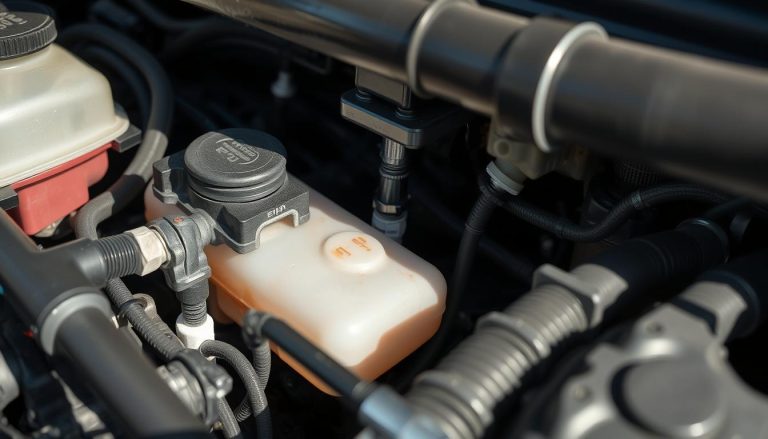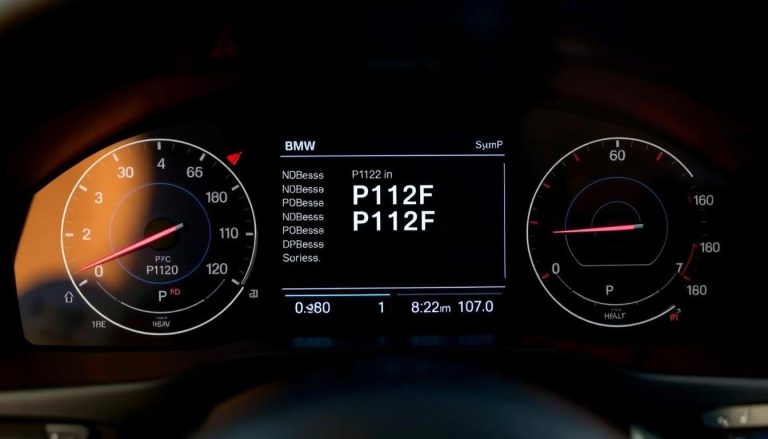When your vehicle’s check engine light illuminates, one common trouble code that might flash on your dashboard is the P0256 code. But what does this ominous-looking combination of letters and numbers really mean? If you’ve stumbled upon this article, you’re probably seeking answers about injection pump fuel metering control issues related to the cam, rotor, or injector components.
Don’t worry; you’re not alone in feeling bewildered by automotive jargon. Here’s an engaging dive into everything you need to know about the P0256 code—its causes, symptoms, diagnosis steps, and repair solutions—to help keep your vehicle running smoothly and efficiently!
What does the P0256 code mean?
The P0256 code indicates an issue with the fuel metering control in your vehicle’s injection pump. Specifically, it relates to Control B for components like the cam, rotor, or injector.
This trouble code typically arises when the Engine Control Module (ECM) detects a problem with how fuel is being delivered to the engine. Fuel metering is crucial for maintaining optimal combustion and performance.
When this code triggers, it suggests that there’s an imbalance or malfunction in how fuel is measured and injected into the cylinders. This can lead to various performance problems if left unaddressed.
Understanding this code helps you recognize that it’s not just a random error—it’s a signal from your vehicle that something needs attention in its fuel system.
What parts can be affected by P0256 code ?
The P0256 code primarily affects the injection pump and its surrounding components. This includes the fuel metering control system, which plays a critical role in regulating fuel delivery to the engine.
Within this system, issues can arise with specific parts like the camshafts and rotors. These elements are essential for maintaining precise fuel flow under varying engine conditions.
Additionally, injectors may experience malfunctions due to improper signals from the control unit. If they fail to deliver adequate fuel, it can lead to performance issues or even stalling.
Sensors related to pressure and temperature might also be implicated when diagnosing a P0256 code. Their failure can disrupt communication within the entire fuel management system.
Each of these components works together intricately, making it crucial to identify where exactly the problem lies for effective repairs.
What are the possible causes of a P0256 code?
The P0256 code typically surfaces due to issues with the fuel metering system. A malfunctioning injection pump is a primary suspect, often leading to inconsistent fuel delivery.
Worn or damaged injectors can contribute as well, affecting how fuel enters the combustion chamber. Additionally, problems in the camshaft or rotor assembly may lead to erratic fueling behavior.
Electrical problems, such as faulty wiring or corroded connectors within the fuel control circuit, might also trigger this code. Sensor failures related to pressure readings can mislead the engine control unit (ECU), causing further complications.
Software glitches in the ECU itself should not be overlooked when diagnosing a P0256 code. Each of these issues demands attention for successful troubleshooting and resolution.
What are the common symptoms of a P0256 code?
When your vehicle throws a P0256 code, it often manifests several noticeable symptoms. One of the most common is engine performance issues. You might experience stalling or sluggish acceleration.
Another telltale sign is poor fuel economy. If you find yourself filling up more frequently than usual, this could be an indicator that something’s off in your fuel system.
Watch for warning lights on the dashboard as well. The check engine light may illuminate, signaling that it’s time to investigate further.
Unusual noises from the engine can also point to problems associated with this code. These sounds might include knocking or hissing as components struggle to function correctly.
Hard starting or failure to start altogether can indicate serious underlying issues linked with a P0256 code that requires immediate attention.
What are the diagnostic steps for a P0256 code?
When diagnosing a P0256 code, start by connecting an OBD-II scanner to your vehicle. This tool will read the trouble codes stored in the engine control unit.
Next, check for any additional codes that might be present. Sometimes, multiple issues can arise simultaneously, providing more context for troubleshooting.
Inspect the fuel system components thoroughly. Look at the injection pump and related sensors like camshaft or rotor position sensors for wear or damage.
It’s also crucial to examine electrical connections and wiring harnesses linked to these components. Loose connectors or frayed wires can lead to erroneous readings.
After conducting visual checks, perform a functional test of the injection pump while monitoring fuel pressure and flow rate. This will help identify performance issues tied directly to the P0256 code.
Reviewing service bulletins specific to your make and model may reveal known problems that could simplify your diagnosis process.
How serious Is the P0256 Code? Can I continue driving with the P0256 code?
The P0256 code signals issues with fuel metering control, which can disrupt engine performance. Ignoring it may lead to severe problems down the line.
Driving with this code present isn’t advisable. The vehicle might experience reduced power, stalling, or increased emissions. These signs indicate that your engine isn’t getting the right fuel mixture.
Continuing to drive could exacerbate damage to other components of your fuel system or even affect the engine itself. It’s essential to address the issue promptly rather than risk costly repairs later on.
If you notice a significant drop in performance or any unusual sounds while driving, it’s best to have your car checked immediately. Prioritizing safety and functionality is key for both you and your vehicle’s longevity.
What are the repair solutions for a P0256 – Injection Pump Fuel Metering Control B (Cam/Rotor/Injector) ?
Repairing a P0256 code often starts with a thorough inspection of the fuel metering system. Technicians typically check for any visible damage or wear on components like the injection pump, camshaft, rotor, and injectors.
If issues are found, replacing faulty parts is usually necessary. In many cases, the injector may need recalibration or outright replacement to ensure proper function.
Cleaning fuel lines and filters can also be beneficial. Contaminated fuel systems may lead to incorrect metering signals.
Software updates or reprogramming of the engine control module (ECM) might resolve coding errors affecting performance.
In some instances, wiring defects can contribute to this issue; examining connections for corrosion or breaks is essential before concluding repairs. Identifying underlying problems early helps prevent future breakdowns and costly repairs down the road.
What other codes may be related to P0256?
When dealing with the P0256 code, it’s essential to consider other related diagnostic trouble codes (DTCs) that may be present. These can provide additional context and help pinpoint the underlying issue more accurately.
Codes like P0250 relate directly to fuel metering control but focus on different components. The P0261 through P0268 codes indicate injector circuit problems, which could co-occur if there’s an issue with fuel delivery.
Additionally, you might encounter codes such as P0230 or P0234 that pertain to fuel pump relay malfunctions or turbocharger issues affecting engine performance.
Identifying these associated codes can lead to a more comprehensive understanding of your vehicle’s condition. By addressing multiple DTCs simultaneously, repairs can often be made more efficiently and effectively.
How much does it cost to diagnose and repair a P0256 code?
The cost to diagnose and repair a P0256 code can vary significantly based on several factors. Typically, diagnostic fees range from $100 to $150 at most auto repair shops. This initial assessment helps identify the root cause of the issue.
Once diagnosed, repairs can be more complex and costly. Depending on whether you need to replace parts like the injector pump, fuel metering control valve, or even wiring harnesses, expenses can soar. You might spend anywhere from $300 to over $1,500 for repairs.
Labor costs also play a crucial role in total expenditure. The time it takes for mechanics to address this code could lead to additional charges based on hourly rates.
It’s wise to get multiple quotes before proceeding with any major work. Understanding potential costs upfront helps manage your budget effectively while ensuring your vehicle runs smoothly again.
How long does it take to diagnose and repair code P0256?
Diagnosing and repairing the P0256 code can vary widely based on several factors. Typically, a skilled technician might spend about one to two hours diagnosing the issue. This includes running tests and checking various components linked to fuel metering.
Once the diagnosis is complete, repair time may take an additional few hours or more. The complexity of the problem plays a significant role here. If it’s simply a faulty sensor, repairs could be quick. However, if it involves replacing major components like the injection pump or rotor, expect longer service times.
The availability of parts also influences overall duration. Waiting for specific parts can delay repairs significantly in some cases. Always consult with your mechanic for an accurate estimate tailored to your vehicle’s needs and condition.
Is the P0256 code specific to certain car makes or models?
The P0256 code is not restricted to a specific make or model. It can appear in various vehicles equipped with diesel engines and common rail fuel systems.
Typically, manufacturers like Ford, GM, Dodge, and Volkswagen might report this code. However, the underlying issue tied to the injection pump fuel metering control can be present across multiple brands.
Certain vehicle models may display the P0256 code more frequently due to design choices or software configurations. Older models tend to have different diagnostic protocols than newer ones.
It’s essential for owners of any vehicle experiencing symptoms related to this code to understand that while it may affect numerous makes and models, each manufacturer will have distinct repair processes and specifications needed for resolution.
How can I avoid a P0256 code?
Preventing the P0256 code starts with regular vehicle maintenance. Routine oil changes and fuel filter replacements can help keep your engine running smoothly.
Using high-quality fuel is essential. Poor quality or contaminated fuel can lead to injector issues, which may trigger this trouble code.
Pay attention to your vehicle’s performance. Any unusual sounds or decreased power could indicate a problem before it escalates into a more significant issue, including the P0256.
Additionally, keeping an eye on diagnostic codes during routine check-ups will allow you to catch any potential problems early.
Staying informed about recalls and service bulletins related to your specific make and model can be beneficial in avoiding issues that might lead to the P0256 code appearing.
What happens if you ignore a P0256 code?
Ignoring a P0256 code can lead to serious consequences for your vehicle. When this code is present, it usually indicates an issue with the fuel metering control system, which is crucial for proper engine performance. If left unaddressed, you may experience decreased fuel efficiency and increased emissions due to improper fuel delivery.
Over time, the situation could worsen. You might encounter more severe symptoms such as rough idling, stalling, or difficulty starting your vehicle. These problems not only affect drivability but can also put additional stress on other components of your engine.
Moreover, neglecting the P0256 code could result in costly repairs down the line. What starts as a minor issue has the potential to escalate into significant damage if critical parts like injectors or pumps fail entirely.
Addressing a P0256 code promptly ensures that your vehicle runs efficiently and reliably while preventing further complications that could impact its overall health and longevity. Staying proactive about maintenance will save you time and money in the long run.


